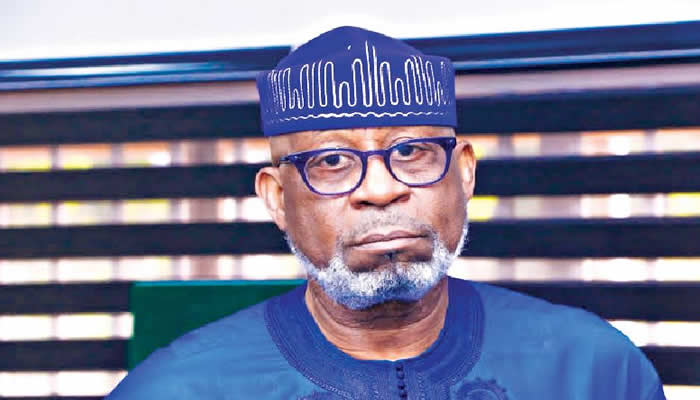Dele Alake, Nigeria’s Minister of Solid Minerals Development, has issued a resounding call for international collaboration to navigate the complex landscape of the global energy transition. Speaking at the Organisation for Economic Cooperation and Development (OECD) Forum in Paris, he stressed the urgency of collective action, emphasizing that the decisions made today will profoundly impact the future of energy generation, transportation, and global economic prosperity. Alake’s message underscored the interconnectedness of nations in achieving a sustainable future, urging world leaders and industry stakeholders to forge stronger partnerships to drive the shift towards cleaner energy sources and sustainable mining practices. His address served as a clarion call for shared responsibility and collaborative efforts in shaping a more sustainable future for all.
Alake highlighted the pivotal role of the mining sector in facilitating the global transition to green energy. He argued that responsible and sustainable mining practices are not merely aspirational goals but fundamental obligations to future generations. This entails a comprehensive approach that encompasses strategic site selection, optimized operations, sustainable processing techniques, effective waste management, and robust environmental stewardship. The Minister emphasized the need for a paradigm shift in the mining industry, moving away from traditional practices towards a more sustainable and environmentally conscious approach. This shift, he argued, is crucial for ensuring the long-term viability of the mining sector and its contribution to a cleaner energy future.
To attract investment and foster growth within Nigeria’s solid minerals sector, Alake outlined a series of investor-friendly incentives implemented by the government. These incentives include import duty waivers, accelerated capital allowances, and tax holidays, all designed to stimulate investment and boost economic activity within the sector. These measures are coupled with comprehensive reforms aimed at promoting sustainable extraction practices, encouraging domestic processing of minerals, and enhancing infrastructure connectivity. Alake pointed to positive results already emerging from these initiatives, citing increased revenue generation from mining license fees, the formalization of artisanal and small-scale mining cooperatives, and the registration of private mineral buying centers. These advancements, he asserted, demonstrate the effectiveness of the government’s reforms in driving responsible development within the mining sector.
Recognizing Africa’s strategic importance in the global energy transition, Alake highlighted the continent’s abundant reserves of critical minerals, including cobalt, lithium, copper, and tantalum. He called for a transformative shift in Africa’s role within the global mineral supply chain, advocating for a move beyond the mere export of raw materials towards becoming leaders in value-added processing and high-value mineral production. As Chair of the Africa Mineral Strategy Group, Alake underscored his commitment to working with counterparts across the continent to advance a shared agenda of value addition, resource mobilization, and responsible development. This collaborative approach, he emphasized, is essential for unlocking the full potential of Africa’s vast mineral wealth and fostering inclusive economic growth across the continent.
Alake’s address at the OECD Forum served as a platform to advocate for resilient, transparent, and ethical mineral supply chains. He emphasized that achieving this requires multi-stakeholder collaboration, bringing together governments, the private sector, civil society, and local communities. He reiterated Nigeria’s commitment to partnering with global stakeholders to promote responsible sourcing of minerals, encourage beneficiation processes, and deliver long-term economic value. This collaborative approach, he argued, is crucial for fostering sustainable development and ensuring that the benefits of mineral extraction are shared equitably among all stakeholders.
In essence, Alake’s message at the OECD Forum was a call for global unity and collaborative action in navigating the complexities of the energy transition. He underscored the urgency of embracing sustainable mining practices, promoting value addition within mineral supply chains, and fostering inclusive growth. His emphasis on partnership and shared responsibility served as a reminder that the challenges of the energy transition are global in nature and require collective efforts to overcome. He presented Nigeria’s proactive approach as a model for other nations, emphasizing the importance of strategic reforms, investor-friendly incentives, and a commitment to responsible development. His address ultimately served as a powerful call to action, urging world leaders and industry stakeholders to work together in shaping a more sustainable and prosperous future for all.


